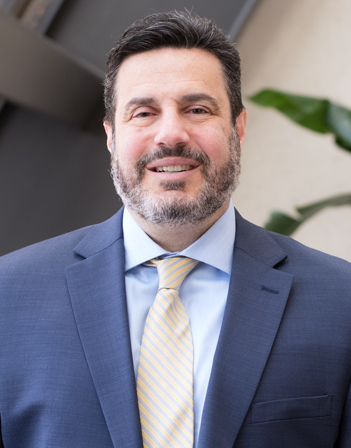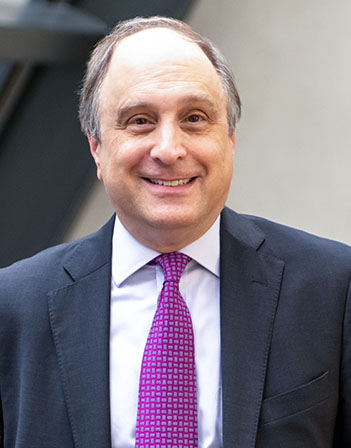
Article
Your Rights Under NJ's Medical Aid in Dying Act
New Jersey’s Medical Aid in Dying for the Terminally Ill Act was signed into law by Governor Murphy on April 12, 2019 and effective August 1, 2019. New Jersey joined 8 other states and the District of Columbia who lawfully extend this compassionate option to qualified terminally ill patients. The State of Maine has since been the 9th state. American citizens do not have a "right" to die, however, the United States Supreme Court in Glucksberg v Washington (1997) clarified that states may consider the complex legal, moral and practical question of Medical Aid in Dying within the context of their right to regulate the medical profession. Since that landmark determination, legislatures in over 20 states have commenced such a consideration.
New Jersey’s Act, similar to those in the other states where Aid in Dying is a permitted medical practice, limits its applicability to “qualified terminally ill patients.” To qualify, a patient must:
1. be an adult resident of New Jersey;
2. be mentally capable to make medical decisions. Should either the attending or consulting physician have a question as to the patient’s competence, then a referral to a psychologist, psychiatrist or clinical social worker is required, and a written determination be made. NJSA 26:16-8;
3. be determined by an attending physician and a consulting physician to be terminally ill and have a prognosis of six months or less;
4. voluntarily expressed their wish to receive medication pursuant to this Act in writing on the form prescribed by law and orally twice to their physician at least 15 days apart pursuant to the provisions of NJSA 26:16-10 and NJSA 26:16-4;
5. be able to self-administer the medical.
These safeguards ensure that the applicability of this law is narrow. Review of these qualification requirements demonstrates that the following cannot be determined to be “qualified terminally ill patients”:
1. Minors;
2. Non-New Jersey residents;
3. Dementia patients and other patients who are considered incompetent to make medical decisions;
4. Patients who are unable to self-administer medical care, such as patients who are paralyzed and cannot move or patients with a progressive neurological disease once they lose the ability to self-administer;
This also reveals that the request for a Medical Aid in Dying prescription is non-delegable and must be made by the patient in a timely fashion concurrent with their medical diagnosis and prognosis. As such, it cannot be made by a medical proxy, spouse or next of kin and the patient’s wishes cannot be validly expressed in an advance directive, POLST form or another similar mechanism. The narrowness of the Act is intentional to assure that New Jersey’s law does not encourage fraud, deception and abuse by unscrupulous caregivers and potential heirs. However, clients with existing Advance Health Care Directives may wish to consider having their estate planning document redrafted to as to include language enabling them to exercise their options under the law notwithstanding any provisions in the directive to the contrary.
This law is entirely optional on the part of a patient, medical provider, health care facility, hospice care provider and residential continuing care community. No person who wishes not to participate is required to participate. Having said this, those who do chose to participate must satisfy the rigorous safeguard provisions detailed above. Similarly, the law sets forth detailed obligations of the medical providers who must document each of the eligibility and requirement obligations. It is also notable that the Act prohibits contracts such as health and life insurance contracts from being voided or otherwise impacted by a patient’s decision to request medical aid in dying. As such, health and life insurers cannot lawfully deny benefits to their policy holders who choose to avail themselves the rights afforded under this Act.
Finally, it is worth noting that medical providers and family members who assist a patient who chooses to request medication pursuant to this law are immune from criminal, civil or professional licensing liability as long as they act in good faith. So family members and medical providers such as hospice workers, nurses, social workers and physicians can feel at ease driving a patient to an appointment, picking up the prescription, and even discussing the patient’s wishes.
On August 27, 2019 a State Appellate Court overturned a temporary restraining order that had enjoined the New Jersey Act from being implemented. Therefore, despite the on-going constitutional challenge to the law brought by a physician who alleges that the law violates his first amendment rights among other allegations, the law is effective and available for use by qualified terminally ill patients. Given the nearly identical laws that have been upheld by several federal and state courts, it is fully expected that the New Jersey law will remain in full force and effect going forward. Should you or a family member wish to discuss your rights under New Jersey’s Medical Aid in Dying for the Terminally Ill Act, or if you are a medical provider and wish to know with confidence your professional obligations involving your professional practice relative to his law, please do not hesitate to contact Sal Anderton or Richard Ploss.



